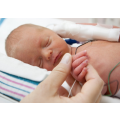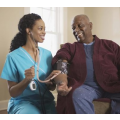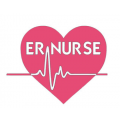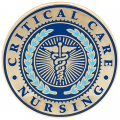A psychiatric-mental health nurse (PMHN) fills a specialist role within the practice of registered nursing (RN). These focused RNs work with patients, families, and communities to assess their mental health needs. PMHNs diagnose mental illness, develop treatment plans, and educate a patient’s family about the illness and the best approaches for coping. They also implement the nursing process and frequently evaluate it for efficacy. PMHNs work in mental health clinics, university health centers, correctional facilities, rescue missions, and substance abuse centers.
Latest articles
Pediatric nurses are registered nurses (RNs) that address the unique medical needs of children. They work in a variety of healthcare settings such as hospitals, critical care facilities, doctors’ offices, and community-based settings. Also called “certified pediatric nurses” or “CPNs,” pediatric nurses provide primary care services like examinations, health screenings, immunizations, school physicals, and treatment of childhood conditions.
Obstetrical nurses, also known as OB/GYN nurses or gynecology/obstetrics nurses, are registered nurses (RNs) who care for women during their reproductive years. Because the reproductive years begin during puberty, obstetrical nurses also care for tweens and teens. These skilled nurses perform annual gynecological exams, assist with labor and delivery, administer vaccinations, conduct diagnostic tests like mammograms, and educate women about birth control and sexual health. Some obstetrical nurses specialize in labor and delivery.
Nurse executives are registered nurses (RNs) that work on senior leadership teams at hospitals, health systems, home health agencies, nursing care facilities, ambulatory healthcare services, and schools of nursing. They design and direct processes for delivering care, developing the healthcare system, managing / educating staff, and handling the organization’s finances. Some nurse executives have clinical experience in a specific area. This makes them ideal candidates for nurse administrator positions – for example, at a children’s hospital or an adult rehabilitation center.
Neonatal nurses are registered nurses (RNs) that care for newborn babies. The neonatal period is defined as the first month of life, and neonatal nurses typically work with infants from birth until they are discharged from the hospital. However, neonatal care can last for months if the infant faces birth defects, malformations, infections, prematurity, or cardiac and surgical problems. In extreme cases, neonatal nurses will care for infants until two years of age.
Medical-surgical nurses care for patients with multiple surgical, medical, and/or psychiatric diagnoses. They work in a broad range of environments including hospitals, clinics, surgical centers, urgent care centers, ambulatory care units, nursing homes, and physicians’ offices. According to the Academy of Medical-Surgical Nurses (AMSN), this specialized area of nursing requires stellar skills in assessment, technical knowledge, organization, prioritization, and communication.
Approximately six percent of the registered nurse (RN) population works in home healthcare services. They travel to patients’ homes, schools, community centers, or nursing homes to provide secondary or tertiary care. Home health nurses offer hands-on treatment, and they educate patients and family members about proper care and prevention. They work with a broad range of patients including the elderly, the terminally ill, the physically disabled, patients in accident rehabilitation, mothers recovering from childbirth, and sick infants.
The U.S. Census Bureau expects seniors (those aged 65 and over) to reach a population of 84 million by 2050. This will nearly double the current U.S. senior population of 45 million. The aging of the Baby Boom generation will power much of this demographic shift. Since seniors account for roughly half of all hospital admissions, the demand for qualified geriatric nurses will increase significantly.
More than 1.5 million registered nurses (RNs) work in state, local, and private hospitals across the United States. Thousands of these nurses work in emergency care. Known as emergency nurses, these skilled professionals provide lifesaving care in emergency rooms, urgent care centers, helicopters, ambulances, and many other environments. They must act quickly to stabilize severely injured and sick patients, diagnose medical conditions, and alleviate pain.
With 2.7 million practitioners in the United States, registered nurses (RNs) comprise the largest healthcare occupation. Of these nurses, more than 1 million hold certification in a specialty area. One of the most common areas is critical care. According to the Department of Health and Human Services (HHS), more than 318,000 RNs are critical care nurses.










